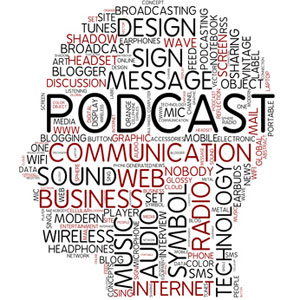Don’t fret if your raw track doesn’t have all of the polish and professional sheen that you would like. As long as your tracks start with clean and clear audio, there is plenty of room to make adjustments when mixing. Many pro studios are already adding some degree of processing and effects while recording, so the comparison isn’t really apples-to-apples. Take your mixing one step at a time, and try to stay goal oriented.
You can read more details here: http://therecordingrevolution.com/2012/12/10/help-my-tracks-dont-sound-as-good-as-pro-studio-tracks/
Recording Tips and Techniques
Put What You Learned To Use
There are tons of quick and easy tutorials and tips on the internet for every topic imaginable. It’s not hard to get caught up in “learning” several new techniques each day without actually applying them to your production process. Look back on 2012. How many times did you think to yourself that new information was going to have a positive impact on your recording, but never actually put it to use? Take inventory of your “to use” list of new ideas and pare it down to a manageable size. Choose a few of the best, and make it a goal to really implement these ideas in the coming year.
You can read more here: http://therecordingrevolution.com/2012/12/24/what-did-you-learn-this-year/
Getting The Most For Your Money With Equipment Investments
No longer are we restricted by a huge barrier to entry for audio recording. It’s still possible (and in some cases necessary) to spend thousands upon thousands of dollars on gear, but today you can get started with just a few dedicated purchases. Start with a computer that’s up for the job. Software tends to be designed for the “average” computer, and hardware has made some tremendous leaps recently. The latest-and-greatest laptop might last you quite a while, but it’s far from a necessity. If you’re on a relatively recent version of your operating system, you may even be able to get by without buying a new computer. Add on some software and a quality mic and you’re well on your way to music production.
You can read more about getting started on a budget here: http://www.audio-issues.com/home-recording-studio/recording-equipment-for-less-money
What Is A Podcast?
 Home recording can be a hobby, a business, or a blur of the two. There’s plenty else going on in the world, though, and today’s world embraces the voice of the individual. There’s already tons of political commentary; maybe you want to put in your two cents? Conversely, there’s already tons of political commentary, and you might want to do your part by creating other worthwhile media. From beekeeping to web comics and everything in between, podcasts are a way to be heard.
Home recording can be a hobby, a business, or a blur of the two. There’s plenty else going on in the world, though, and today’s world embraces the voice of the individual. There’s already tons of political commentary; maybe you want to put in your two cents? Conversely, there’s already tons of political commentary, and you might want to do your part by creating other worthwhile media. From beekeeping to web comics and everything in between, podcasts are a way to be heard.
 A podcast is regularly published program, very like a radio program, that people can subscribe to, download onto their iPods (hence the name “pod”-casting), and listen to whenever they like. For example, a lot of people like to listen to podcasts in their cars on long drives or daily commutes. Podcasts are pubished via RSS, so you can subscribe to them in much the same way as you would subscribe to any RSS feed. BTW, whenever you see the orange symbol, called an RSS chicklet, like the one on the left, that refers to RSS, and blogs allow you to subscribe just by clicking on it. You then can read all the posts through any RSS feed reader, such as Google Reader. The only difference with a podcast is that it’s audio (usually) instead of text. If you want to find interesting RSS feeds to follow/subscribe to, you can go to Google Reader, or any other RSS feed “aggregator,” and just search for them. You can do the same thing with podcasts, you can go to iTunes and search and subscribe to them there. And as with normal RSS feeds, you can find and subscribe to podcasts through other services as well, such as PodcastAlley and PodOmatic.
A podcast is regularly published program, very like a radio program, that people can subscribe to, download onto their iPods (hence the name “pod”-casting), and listen to whenever they like. For example, a lot of people like to listen to podcasts in their cars on long drives or daily commutes. Podcasts are pubished via RSS, so you can subscribe to them in much the same way as you would subscribe to any RSS feed. BTW, whenever you see the orange symbol, called an RSS chicklet, like the one on the left, that refers to RSS, and blogs allow you to subscribe just by clicking on it. You then can read all the posts through any RSS feed reader, such as Google Reader. The only difference with a podcast is that it’s audio (usually) instead of text. If you want to find interesting RSS feeds to follow/subscribe to, you can go to Google Reader, or any other RSS feed “aggregator,” and just search for them. You can do the same thing with podcasts, you can go to iTunes and search and subscribe to them there. And as with normal RSS feeds, you can find and subscribe to podcasts through other services as well, such as PodcastAlley and PodOmatic.
A podcast can be audio-only, audio with video, or even enhanced versions that include video synced with pictures, links, or other media. Somewhat similar to a podcast is a “vlog”, or video-log, which can be differentiated by their tendency to present more personal commentary or opinions.
The power and availability to put have your voice heard shouldn’t be taken lightly. Social media can help drive organic interest in your band, website, or other product, and podcasts offer a benefit to the listeners that they may then share with their peers. With that goal in mind, remember the importance of first impressions. If your podcast has poor audio quality, how does that set expectations for your music? Like it or not, presentation has a huge impact on overall perception of the quality of content.
A business shouldn’t have much difficulty with finding topics for a podcast. A computer repair store might have advice about online privacy, routine maintenance, and signs that it’s time to take your computer in to a professional. A band might give updates about upcoming shows or release samples of an upcoming album.
A podcast should not only be informative or entertaining to the listener, but also help drive interest to your product or website. Many podcast services will allow listeners to subscribe to receive updates. Adding an incentive to the subscription can help give some listeners the little nudge that they need. Even something as small as a free song download can be enough.
Regardless of the content, a poorly done podcast will do more harm than good. In the best case scenario, a bad set of recordings will fail to drive traffic and the production time was wasted. Take your time during recording, keep to your planned topic, and have a fresh set of ears listen to your final product before you publish it.
In our next podcasting article, you’ll read about how to publish your own show. Read that here: How To Create and Publish Your Own Podcast
Give Your Track A Final Polish With Audio Mastering
After listening to your tracks countless times in a row, it’s hard to make precise, objective decisions about the minute details. A mastering engineer has both the experience and equipment to make the various tweaks and adjustments (balance, stereo image, EQ, etc.) that add up to make a big difference. There’s a whole lot more that can be done in today’s modest home recording studio than used to be possible, but there are some things that really are best left to the thousands-of-dollars setups of mastering engineers. For a review of what mastering is, see our post – Mastering a Song – What Does It Mean?
Read more about audio mastering and its benefits here: http://www.audio-issues.com/mastering/audio-mastering-important/